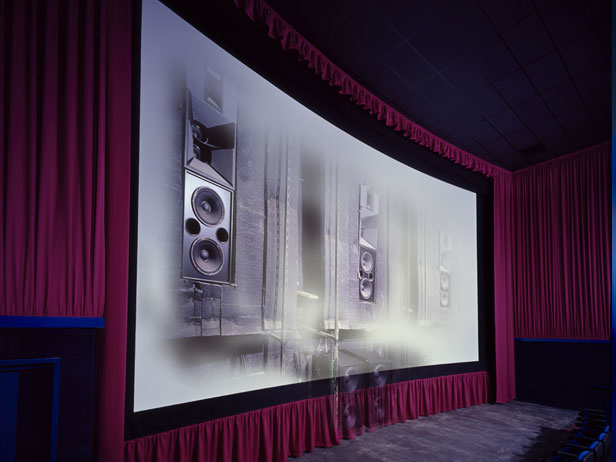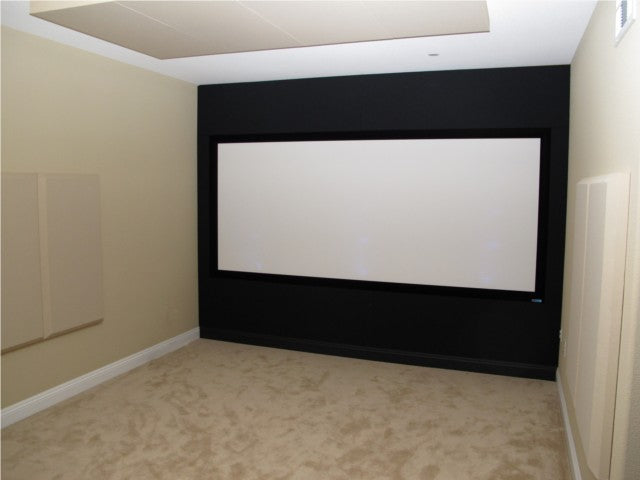Creating a system you love shouldn't be difficult. The Acoustic Frontiers blog is here to help.

What is a THX baffle wall and why do I want one in my home theater?! This article explains what a baffle wall is, covers the acoustic and audio benefits and finally provides tips on how to design and build them.
A baffle wall is essentially a false wall into which the screen speakers (i.e. left, center and right) are mounted. It is a core component of a THX certified cinema.
“Unique to every THX Certified Cinema is the THX “baffle wall.” If you were to peel away the screen at any THX Certified Cinema, you will see a massive wall of speakers housed in an acoustic baffle. The baffle wall is approximately the same size as the screen, providing a solid, smooth and uninterrupted surface to distribute sound throughout the auditorium. It produces a large sound image and accurately tracks sound elements with the onscreen action. This makes panning shots and off-screen sounds more believable and natural, helping to pull audiences into the storyline. Without a baffle wall, sound is uncontrolled – producing a weak, uneven image.”

Baffle walls have a couple of major acoustical benefits which translate into sound quality benefits:
From a sound quality perspective these things mean that the sound tracks cleanly from left to right with no jumps, we have more headroom at low frequencies and we have better bass free from boundary interference suckouts.
Note that very few speakers are designed to be baffle wall mounted – most are designed to be used in free space and hence incorporate baffle step compensation circuits or are otherwise designed to counteract baffle step losses. When placed into a baffle wall the frequency at which the baffle step occurs is moved significantly downwards, to 80Hz or lower, which results in a bass boost. It is possible to equalize out this boost using a low shelf filter.
baffle wall allows you to hide the screen speakers and front wall located subwoofers so that they are no longer visible. This provides for a very neat and visually attractive installation.
If shallow format speakers and subwoofers are selected baffle walls can be made very shallow. The baffle wall in our demo room uses Procella Audio speakers and subwoofers which allow the baffle wall to be only 8″ deep.





We have written an in depth case study of the design and build of our Demo Room baffle wall which explains the steps in the process and how it fits in the overall theater design process.



Nyal Mellor, Founder, Acoustic Frontiers
Nyal Mellor
Author